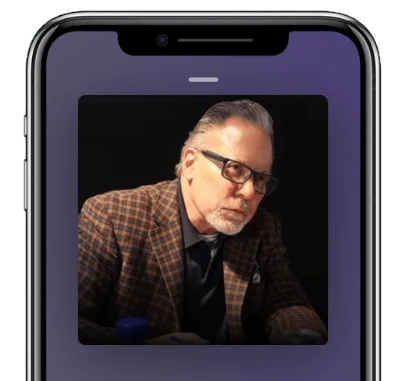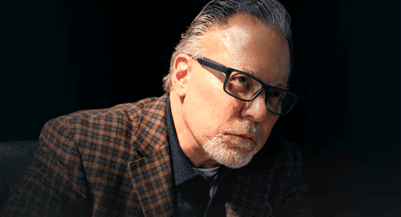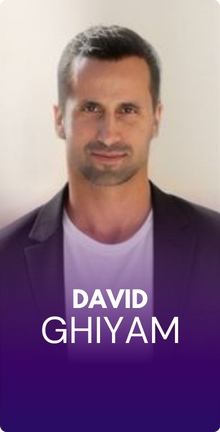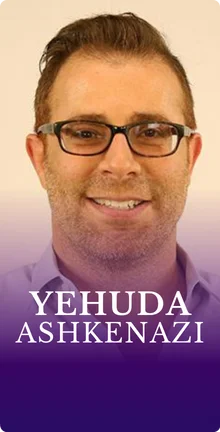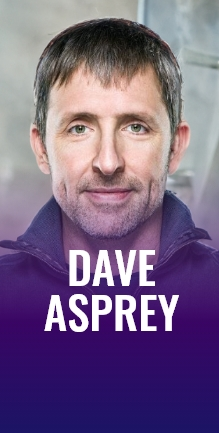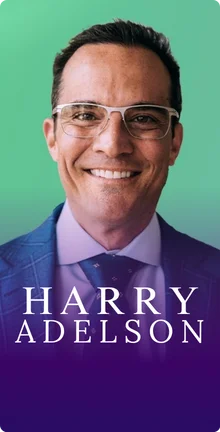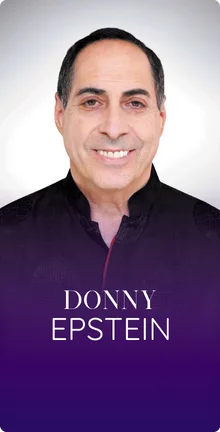It’s an honor and pleasure any time I get to collaborate with someone as unique and bright as yourself. I feel privileged.
First of all, as a way to set the stage for this potentially amazing interview, which I’m sure it will be, what would make this the very best interview you’ve ever had?
Probably the best thing you could do is plumb more of my ideology and worldview as opposed to business. Ask me questions that would help whatever the profile of your audience to re-reflect and think differently about the rest of their lives, their careers, and their relationships and see if I could be a meaningful catalyst for that as opposed to doing shtick on what I normally do.
That makes a lot of sense because there are so many interviews out there about your different books and about preeminence. I’m sure you get tired of reiterating the same stuff over and over again over the years.
I get tired when people don’t do anything with it. There’s a larger segment of humanity today. We were talking about social media that goes through the process of what I’ll call veneer experiencing but it’s not deeply and meaningfully impactful to them. A huge portion of the dynamics going on in their day, in their lives, in their interactions are not even diffused. They’re almost worthless and that is a big tragedy.
The dumbing down of America and globally, that’s happening because of social media and how Facebook and the likes of all employed casino engineers who figure out how to get us even more addicted. They have done things like make the carpets busier and the ceilings busier and removed all the clocks from the casinos and pumped in oxygen and all these things to optimize the amount of money they’re able to extract from the casino goers. Applying all of that evil genius in keeping us addicted to our phones and constantly checking in, it’s typical for people to check their phone several hundred times a day.
It’s pathetic. Think about being so dependent, enabled, and addicted to the quasi-urgency of seeing who liked me, who texted me, who befriended me or wants me to. It’s a very, not sexually, but a very morally perverse environment in my opinion. It is a disruptive one where you can’t possibly be meaningfully focused on much of anything if every three minutes you’re rejecting the alert tones.
Or the vibration of your phone, if you’re trying to keep it quiet. It’s crazy and it’s going to pose a real hazard to our health, to the future of the human race because we’re so addicted. We’re asleep at the wheel essentially and making poor choices about who gets elected and how the world will be run and what’s important in the long-term game of protecting the environment and addressing climate change. All that goes out the window because we’re looking at the next cute cat video or whatever.
There’s a very good friend of mine that was retained by a client just to confirm a client’s viewpoint. He was paid $750,000 to assess the state of emerging leadership in our country. The conclusion is there is a massive leadership crisis because the younger people are not focused on being preeminent. They’re not focused on collaboration. They’re not focused on growing and developing other people. This is a generalization, not everybody. They’re not good communicators. They don’t want by and large, and there are exemptions and there are exceptions, to work past a certain time. They’re more into their personal experiences. They don’t have a contextual appreciation for the impact on the client, the recipient.

It’s a generalization but the implications that that portends are so horrific. Right now, with Daymond John, myself and another person, we teach corporations how to properly hire, motivate mind, manage, grow, develop, whether it’s Millennials or X’s or Y’s or Z’s because they require different psychological, management is not the right word because that sounds puppeteer-ish, collaborative sense of esprit de corps and purpose-driven guidance. We’re also working on how to sell to those people because it’s a whole different market. Their criteria are different, their interests are different, their judgmental criteria are different. I laugh and I’m just in a nonlinear role.
One of my very dear friends is a very prominent cosmetic surgeon in Beverly Hills and he happens to be arguably one of the three top people in the world in surgeries and treatments above the neck. He is masterful at doing noses and he is called upon frequently to redo bad nose jobs. He tells me that younger people call him and their biggest criteria is, “I can get it for $1,000 cheaper from someone else.” It’s not how many hundreds of thousands of successful surgeries you have done or how many tens of thousands of re-dos have been brought to you. It’s how can I be assured that the most critical distinction in my face or what would I call my facial presentation will be preserved and enhanced? They’re judging on a criterion that is so outrageously insulting to their own best interests that I find it appalling.
It’s not just a question of how to sell to these people who are short-sighted and addicted to their phones and all that but what to sell to them. The courses that you’ve created, the trove of amazing knowledge and wisdom that you have built over the decades is way too much for the average short attention span consumer these days. They want the sound bites and that’s sad and a shame but it’s also a reality. If we have a twenty-hour long course for them to take an online training, we’ve got to figure out a way to dumb it down to an hour or less, even an hour might be too much. What do you suggest to our audience as far as not just how to sell to these folks?
I’m going to advocate something that is diametrically and blatantly different. I would say that if you want to own the mindshare forever, you have to be willing to stand apart from everybody else. There’s no shame in using a sound bite as an entry-level initiator, but sooner or later whatever you sell, you have to be able to gain the trust and respect to the point where you educate and illuminate your market to the fact the best decisions they will make can only be made if they’re well-informed. It’s impossible to be well informed with a bunch of superficial sound bites and five-point reviews that if you don’t delve into, that if you don’t learn due diligence, if you don’t learn the depth of understanding, if you don’t learn the massive spectrum of perspectives that impact any decision, any action or activity, then you can do okay but you’ll never be great. I believe that there’s a certain category of people that want to operate at a much greater level in every aspect of their life, but they don’t know how. That’s not what you want to hear but it’s my opinion.
I’ve done a lot of work on it. If you want to hear the short soliloquy, I’ll be happy to share it. I believe that every human being is innately programmed in their DNA to want greatness in every aspect of their life. I don’t think anyone purposely wants to be mediocre and you can fill in the blank, employee, entrepreneur, manager, leader, lover, husband, wife, father, friend, contributor to the betterment of society and yet 1% or 2% ever achieve that in any of those aspects. You ask, “Why?” In my opinion, there are a couple of very simple reasons. First of all, nobody has an understanding of what greatness is supposed to look like, feel like, execute like and be received like in any of these elements of your life. If you don’t know what it’s supposed to be, there’s a very difficult time and very low probability you can achieve it.
You're either a multiplier or a diminisher. Share on XThe first is you have to get a context of all these different areas of your life and what greatness would look like. The only way you can do it is to model an example, other people and try to identify what it is about them, conduct, attitude, motives, communication, attention, priorities. Then because there are all these factors in your life that are not singularly or are integrally impactful of one another, you’ve got to figure out which one or ones are the biggest detriments. It might be that even though you want to be a great leader or a great team member, you’re so screwed up in your personal life that you have to fix that first to make everything else flow. Once you get a context of what it is supposed to look like, feel like and be received like, to be validated not manipulated or superficial, then you have to isolate which area of your life needs to be worked on first. Then you have to figure out where you are vis-à-vis where you would like to be and are capable of being. That’s the first step.
Step two is when you get those, which most people never get even close to that. The second step is figuring out the safest easiest paths to make progress in those different areas not to pole vault. Too many people want to go from mediocrity to greatness in one fell swoop. They think that a course or a book or a consult or magic pixie dust is going to do it for them and it’s improbable. You have to have a process. My recommendation is don’t try to scale the tallest mountain in the world on your first try. Find one of the walk-up paths to 8,000 feet and do it methodically and slowly first and make progress. If you study X, Y, Z, all these different gradients of age groups, what they want more than anything is to be part of something that’s growing, that’s exciting, that isn’t stagnant.
Part of it has to be self-imposed. You have to invoke yourself into experiences that you create for yourself that are exciting and where you’re growing so you feel fulfilled. First of all, you’ve got to figure out what it’s supposed to look like, express like, what shifts you have to make internally, how you come across, how you validated. Then you go back and you isolate the most critical area, first, second, third, then you figure out where you are vis-à-vis where you want to be. Then you realize you can’t achieve the totality of improvement in any one fell swoop, it’s a process like an adage about eating an elephant.
Then this is where it gets tricky. Anybody here who has either parented a child or had any experience with anybody who has young children knows that when a young child starts learning how to walk, talk, eat, poop, ride a bike, they’re terrible. They fall and the only way they continue, and the only reason I’m able to communicate clearly to you and you’re able to communicate clearly to me and I can stand up and I can walk around and if I have to use the restroom I can use it appropriately is because a parent acted as a champion and a believer in me continuously until I became competent, proficient. We need people in our lives to do that for us. It’s admirable but it’s very difficult to try to do it yourself. It’s as if I wanted to repair my car and I’m so techno and mechanically phobic, it’s unbelievable. When you have a champion, an advocate who picks you up, put you back on the path long enough until it becomes natural and momentum and velocity takeover, that’s pretty much it.
This is something that you’ve applied in your life. What would be an example of how this is manifested for you?
There are a bunch of examples. Earlier in my life, any time I was exposed to anybody that I was impressed with for any reason, I would isolate after the interaction what it was that impressed me; attention, communication, sense of acknowledgment, listening. I would make it a point to try to analyze and understand the anatomy of what just transacted and slowly see if I could incorporate elements of that in my own conduct. Secondly, as I got more negotiable in the market, I was able to make associations with the broadest spectrum of diverse people representing a whole myriad of different skill sets, expertise, worldviews and I would have a dialogue with them regularly where we would talk about life.
I would listen and I encourage them to be constructively critical of me because I know I’m not perfect and I’m far from perfect now. I’m far from perfect as a human being, as a friend, as a father, as a husband, all those things. I’m better than I was. In life, you constantly grow or you die. I am a firm believer in a derivative of the quote from Socrates, “A life unexamined is a life not worth living.” I’ve done most of my work in the entrepreneurial business community. A business that isn’t constantly examined and re-examined isn’t worth owning but a life that isn’t constantly re-examined to make sure that you are following what is your true north, not society’s definition of true north, is very important.

You’re seen as one of the marketing greats. That doesn’t even do justice for what you’ve done in the world like the billions of dollars in value that you’ve created for your clients and so forth. It only scratches the surface of your legacy. I’m curious if we were to map your life out to the model that Alison Armstrong has put together. I’m not sure if you’re familiar with it. Alison Armstrong is an expert on men and on women and the stages that both sexes go through as they age and as they mature. If you think about a man and where he starts out, it’s like a page is as a child, a boy who is just learning the ropes and doesn’t know what he’s doing but he’s modeling after older boys, teenagers, the young men and so forth, who are known as knights in this model that Allison developed. There are different types of knights. Tony Robbins teaches Alison’s work when he’s talking about men and women and polarity and stuff like that during Date with Destiny and so forth.
You go from the knight to prince and you have an early prince, middle prince and late prince. After that, there’s the tunnel which is the general terminology known as a midlife crisis. Then after the tunnel, you become a king. Some men go even beyond the king, a small percentage according to Alison maybe it’s 2%, go on to the emperor. They’re not happy to have their little slice of the world, their little kingdom, they want a large empire. Some men, again a very small percentage, will shift to a wise man or a sage role where it’s about legacy and giving back and making a difference and being the wise man much more than it is about maintaining the kingdom and passing that on to the children and doing right by his family and his co-workers, colleagues and the people that he sees and the people that he cares for. I’m curious, based on that model, do you see yourself as a king as an emperor, as a wise man or what do you think?
I’ll tell you what I have tried to do without sounding morose. Age-wise, I’m in the latter part of the runway of my life. I’m not saying that negative or positive, it’s just a clinical statement. I believe my purpose is to make everybody better off that I interact with because I’m in their life. Helping them in business is certainly important, but business success alone doesn’t give you the joy and the fulfillment that you want. I believe my role and my purpose is transcendent to business although I use business as the sugar that makes the medicine go down. I’m far more valuable in helping people expand their worldview, learn to appreciate the dignity of other human beings, realize the joy of playing full out, realizing the fulfillment that comes from being externally focused, and experience and exhilarate in discovering all that is around you that is outside your comfort zone. A lot of things like that because to me, that is what has enabled me to have that rather unique perspective that I have. I have channeled the dissemination through a business, not screen or filtered but lensed. Deep down, it’s what I said.
Who were your mentors when you were growing up?
There were so many and people asked that. The first one was an employer named Brian Auer who taught me nonlinear thinking, value creation, the possibilities of achieving all kinds of economic performance without having to pay anything except on the result, the value of breaking one thing into many things and redeployment. I went on and I learned the enormous amount about marketing from a person named Dan Rosenthal who introduced me to some of the great minds that existed in the ‘20s ‘30s and ‘40s when you had to understand the workings of the brain.
As I evolved, I was very privileged because I have helped 300, 400 of the top experts. In order to help them, none of them came to me for assistance with their methodology, they came to get their methodology revered more, valued higher, differentiated but I had to learn short course primers on each one. I had everybody from Stephen M. Covey, Tony, the Deming Organization, the number one company in the world in multi-variable testing, Sally Hogshead, Daymond John, Dave Asprey, the top guy in Six Sigma in the world, the world’s number one strategic litigation consulting company and an enormity in between. I listened, I reflected and I learned.
A lot of people don't see themselves for who or what they are not just in conduct but in perception to others. Share on XWithout isolating one person, I would say I am a unique blend of the enormity of influences who I was privileged to be attracted to and attractive to more high-quality pre-eminent thinkers, doers and icons in the industry as opposed to the lower level, avaricious type of short-sighted people. I was very blessed in the beginning and I worked for people who understood either the gaps in the market or how to add more value to the market or were very much advocate or champions of entrepreneurs. I worked for Entrepreneur magazine in the very beginning when no one even knew what the meaning of entrepreneur was. We had to send out our mailing pieces with the Webster’s dictionary, not just phonetic pronunciation but the definition.
I’ve been around for years, and I’m not saying that to calcify myself. I’ve traveled the world, not exactly the total world but 80 or 90 times I’ve gone to China, fifteen years in Malaysia, Asia. Tony Robbins and I, every year, do a full day together of collaborative mastermind problem solving for his higher-level platinum people. I’ve got clients around the world, very few of which are in the information business. They’re diverse and impressive and most of them are either rapidly achieving leadership or they’re niche leaders.
Let’s take one of those names that you mentioned, Daymond John. He’s said publicly that you were a huge inspiration and mentor to him that helped him get to where he’s at today as a billionaire. If you were to channel him right now, what would he say was the most touching vulnerable moment or nugget that Jay shared with Daymond?
The first thing is that I was very candid with him about the Andy Warhol philosophy that we all have our fifteen minutes of fame. I explained to him that I have been very blessed to have a resurgence but truthfully, I was explosively prominent in a certain era and then it became very bland and I flattened out. I’ve been rediscovered to my delight because I haven’t done a lot of promotion. I explained to him that his job was to keep relevant forever and to be an adviser or a contributor to markets, not just in one static way through Shark Tank but to keep growing and developing as markets changed.
To his very great credit, he is one of the most authentic and genuine and humble people I’ve ever met. When I met him, I was vividly impacted by his candor and his humility and his self-effacing. He’d say that I have talked a lot to him about more of life issues than business issues and I’ve tried to instill as much preeminence as I could. You can be very successful, but you need champions who not bring you down to reality, but who make you aware that you are real, that it’s not a surreal, veneer existence and you’re playing a key role in impacting and inspiring all kinds of people. We don’t talk as much anymore because his prominence has gotten so remarkable and deserve it.
He’s a remarkable human being with depths of authenticity who cares very deeply and tries to contribute very richly to segments of the world. I’ve been very blessed that I get exposed to a lot of prominent people. I’m not impressed with prominence. I’m impressed with authenticity. I’m impressed with purpose. I’m impressed with an external focus. Someone who makes you feel important, not you feel that they’re important. That’s a great gift. He possesses that and he has more and more been able to nourish and grow that and apply it in many different forms. I don’t know what he would say. He’s been very gracious and publicly acknowledging me and I must tell you that is a rarity. I’m very pleased and honored and humbled and grateful. I have observed a lot of people in life that other people have made a profound impact on and they don’t do a very good job of acknowledging that. It’s a disservice to themselves, not to their mentor or the influencer because they tend to get arrogant and ignorant and believe that they alone did something when in fact very few of us can do anything by ourselves.

Have you read Daymond John’s book?
I have read both of them. In the first one, I was featured in a half a chapter, which I was very delighted with and I was acknowledged in the back. I helped format some of the points. I read the second one and thought it was good and I gave some perspective. I don’t believe I’m referred to it. His books are very powerful in their understated message. They are designed to help you see that you’re not alone and that there have been many people who experienced a plight or a life at a certain level that is not dissimilar to yours, but they decided to do something different with it. The first is to make the decision, the second is to take the action, the third is to believe in the outcome, and the fourth is to not abandon or abdicate the first time you embrace turbulence.
What would you say are the most impactful books that have changed your life over the years?
For me, it’s a little different. I was impacted outrageously by a collection of old books that were written in the ‘20s, ‘30s, ‘40s and they were about marketing, but they were really about the human mind and the condition and what human beings respond to. I’ll tell you the names. One is called My Life In Advertising, one’s called Scientific Advertising, one’s called Taken at the Flood, and one’s called How to Write a Great Advertisement. Two of them were David Ogilvy. I loved his books. I am not as avid a reader today as I would like to be. The only compensating benefit as I interact with so many clients who read so much that I’m able to at least through osmosis distill a bit of what they learn, but there’s a lot of wonderful stuff out there.
I am troubled by a tendency that I see that both online marketers and books tend to focus a lot on tactics, as opposed to the big overall strategic mindset. Tactics are very important but they are highly subordinate to the major life game we’re playing, whether it’s business, career, relationships. I don’t think enough people think about that. I know I didn’t early in my career and I regret it tremendously. I bounced through it as it happened without being proactive and that’s a tragedy.
Sun Tzu said about tactics in the Art of War, “Tactics without strategy is the noise before defeat.”
I love that, that’s a great quote. I like the Sun Tzu book. This is interesting and I’m not advocating this for religious purposes because my background is Jewish, but I’ve been very impacted when I go to China some of the Buddhist beliefs. I like that because they have a very interesting non-judgmental regard and respect for everything and everyone living and it’s interesting. It’s a life strategy and I like that. I’m not saying anyone or everyone should be a Buddhist. The biggest benefit I’ve gotten out of my life is the ability to explore and examine all kinds of things that are outside the normality of whatever I do or whoever I am. That’s what precipitates geometric growth in a human being.
I’m big into spiritual exploration myself and I like Buddhism as well. The book, The Art of Happiness by the Dalai Lama had a profound impact on me when I read it in 2010, 2009. I’ve also been studying Kabbalah over the last few years. It’s been amazing. I’ve had three episodes on Kabbalah so far on this show. What spiritual message would you want to share with our audience now? If you could encapsulate some of the biggest spiritual lessons that you’ve learned whether it’s through Buddhism or Judaism or anything, what would you tell our audience?
Let me start by saying that I don’t think anyone has the ability to achieve perfection. That’s a fallacy. I do think everyone has the ability to be better every day and to work on themselves every day. I have observed a lot of religious people who with total respect for the religion are hypocrites. In the Jewish religion, they call them three-day Jews. They’ll go to the high holy days and they’ll be a president of their congregation, then they’ll rip people off and be ruthless in business and it’s incongruent. If there is a heaven and a hell, you will go up depending not upon your devoutness to your religion, although that’s certainly meaningful but because of your conduct continuously to your fellow man. You interact with anybody for any reason, for any amount of time, make them better off because you were in their life. There are people who either sap oxygen out of the world or they put chlorophyll back in.
Intention flows from purpose. Purpose flows from values. Values flow from belief systems. Share on XOne of my good friends Robert Hargrove has a philosophy, “You’re either a multiplier or a diminisher.”You make people greater or you make the environment you’re operating in richer, happier or you make it worse and there’s little in between. It’s very important continuously to evaluate yourself because staying on the path is hard. I’ve been very proud of myself many times in my life and I’ve been very disappointed with myself at times in my life. I have to get back on the wagon and I try very hard but I’m an imperfect being and everybody is. Slowing down and doing some deep reflective thinking at key intervals about who you are, what your beliefs are, where you’re going, not just in your career or business but in all aspects of your life. What you’ve done to make others better off whether you are self-consumed or externally focused, whether you are involved in the process or you’re an observer up in the stands. That’s a big difference between sitting up in the stands, watching the game of life, eating hot dogs dripping mustard and drinking beer and being either at least sitting with the team on the bench ready to go on the field.
Sometimes we’re afraid to be on the field playing the game and when we play the game, we take it for granted. There’s nothing in our lives that should ever be taken for granted. We should be grateful, we should be reflective, and we should always be willing to adjust, improve and deeply examine and evaluate ourselves and our relationships with others. It’s also terribly important in our interrelationships with one another to commit yourself to try to explore, examine, appreciate, understand and acknowledge how other people see life even if you don’t agree because that’s their reality. Until you appreciate my reality, you can’t be in sync with me. If you are antagonistic to my reality, then we’ll never have a chance of connecting and maybe that’s good. I don’t think everybody wants to be a bad person. I don’t think everyone wants to be repugnant. I don’t think everyone wants to be arrogant or condescending or egotistical. A lot of people don’t see themselves for who or what they are not just in conduct but in perception to others.
It’s like you need to climb this wall of context separating you and the other person and get into their world after you’ve gotten over the wall, so you can see what they see out of their eyes what the world is like.
The world is representative of a multitude of different realities. If you delude yourself to believe that your reality is the only one, then you’ve limited your ability to connect with 95% of humanity.
I see business as a spiritual game and I’m guessing that you would agree with that.
I never thought about it like that but it’s far transcendent of mere money-making or mastery of marketing or advertising or promotion. It has to do with a lot of holistic factors. Those people who play it for purpose and who will play it for contributing to others win a lot more in their life than those that don’t.
A concept that I learned from Kabbalah is that intention is everything, but it’s a lot of the equation. If you are nice to a homeless person but your intention was just to look good, that takes away all the blessings. Whereas if your intention is to share light or spread light then that’s going to yield the blessings. In business, if you apply those concepts of intention and how important that is, what would be an example in your mind of a positive intention and a negative intention with the same exact situation? Outwardly speaking, let’s say you’re donating to your charity or whatever. Share an example if you could.
Did you ever watch the TV show, Billions?
I have not. I’ve heard it’s good though.
He was facing a bad public embarrassment for having traded a lot of stocks right in the middle of the World Trade Center problem. A man came to him who was an expert in foundations and his suggestion was he donate $1 billion right now to a special foundation to placate and show remorse but it was a superficial, theatrical and tactical move to win the market. It had no authenticity behind it. Let’s talk about intention. Intention flows from purpose. Purpose flows from values. Values flow from belief systems.
If your belief system is, “It’s all about me,” then there is no intention that you can possibly have that has the integrity to it based on my definition of integrity. However, that other person has a different one or they would not be doing it. If your values and your ideology is all about making the world better, making people better, adding value, contributing, being authentic, not ever being manipulative and every time you engage with people for any reason you’re trying to make sure that they’ve got value and they’ve felt listened to. That’s great. I don’t know if that helps or if that’s a bad example.

Honestly, I don’t watch much TV so I’m not familiar with Billions.
It’s good, you don’t waste time.
I do feel it’s a waste of time to sit in front of the boob tube. Speaking of sitting in front of the tube, what do you do as far as self-care? I don’t know if you’re doing a lot of meditation or what. A lot of people self-medicate by sitting in front of Netflix all the time. You’re a special class person and I know you do some pretty extraordinary things like you get a four-hour massage and things like that. I’d love to hear a bit about your self-care regimen.
It’s probably contradictory. My job is untangling Gordian knots. People do not come to me normally with easy issues, problems, challenges or opportunities. They’re normally complex and they’re extremely stimulating but at the end of the day, I’m pretty wiped out because I’ll do sometimes six, eight, ten totally different businesses in totally different industries. I got back from a month in Europe and Asia so I’m a little bit fatigued. Normally every week, I will get three 90-minute to two-hour treatments of acupuncture. I will get three massages of different kinds. I get special injections that are flown in from Switzerland that are growth factors and they’re expensive. I have done stem cells. I have a relationship with the preeminent Chinese energy coach of North America who works with Tony and Dave and he works on me. When I’m home, very honestly, I like wine but I try not to drink very much because as I’ve gotten older, my system can’t handle it.
I do like to escape, so I will watch interesting Netflix issues. This is going to sound morose, I try to read the obituaries, but I don’t read the prominent iconic ones. I’m more interested in a human being who lived a meaningful life and it was marginalized by a few paragraphs or a few sentences because I know that everybody in their own situation did wonderful things and I want to appreciate humanity. I used to be very much into exercise and I’ve stopped being as vigilant, which I need to recoup. I’ve managed to abuse my body pretty bad and I need to work on some alternative ones because I used to do very intense ones that I had suffered the consequences. I speak regularly with a broad spectrum of diverse people trying to learn what they’re doing and what’s interesting to them. I spend a lot of time doing the reflective thinking and it’s free-form, it’s not always topic driven.
As I’ve gotten older, I get somewhat entranced when I’m working with a client and I don’t remember much of anything. I try to slow down at the end of the day or in between and remember what happened because most of the time my advice, my perspectives are very powerful but I don’t remember any of them and I try to slow down and remember what happened, what I learned, what I did and what I shared. I’m not as big in nutrition as I should be, but I don’t eat usually fried foods. I don’t eat sweets unless I’m drinking too much red wine and then I have an obsession for chocolate. I try to spend time appreciating what’s happening at any moment because everything is going so fast that we’re not aware of much of anything. That’s a tragedy because it’s too much wonderment that we dispense with and too much inconsequentiality that we take seriously.
You mentioned Dave and I’m guessing you’re referring to Dave Asprey. Dave Asprey, who’s been a guest on this show, a great episode, he’s got such an amazing regimen of biohacks. I’ve taken a bunch of supplements that I’ve learned about from Dave and some that his company produces, like Unfair Advantage, I had an ampule of that. I’ve had some Brain Octane in the morning, which is another one of his Bulletproof products. I’m curious what changes you’ve made because of your friendship with Dave.
I like Unfair Advantage. I have a difficulty myself with the butter, but I drink his coffee. He’s very gracious to me and I get deliveries every month of all his goodies. Mostly it’s the coffee. Not that all his products and supplements aren’t great, they are. I’m just not as disciplined as most. I would recommend to almost anybody that they study him. I’ve known a number of clients that went on his Bulletproof Diet and lost 30 to 40 pounds and gained enormous clarity and energy and rebirthing invigoration. He’s a remarkable person who has done exceptionally wonderful things to help people elevate their capacity to just experience the wonderment of life by first of all making their brain function at a much higher level. I’m not as diligent as I could be but it’s only because, no excuse, but my wife uses everything that he’s got. She’s operating at a very elevated level mentally, intellectually and perceptivity-wise. When you operate at that level, you experience a whole different reality than the majority of people because you are at a much more stratospheric awareness, perception and understanding of all that’s going on, so I encourage everyone.
We’re not serving ourselves so often by not availing ourselves of all that is out there. Share on XYou had stem cell therapy. Did you go to Dave’s stem cell doctor, Dr. Harry Adelson?
Yes, I did.
Me too and so did Orion, my wife.
Did you get a good outcome?
I didn’t have any serious aches or pains or anything to address. I did it more for longevity and more of an insurance policy because I wanted to get my stem cells bank.
I did the same. I have a couple of injuries that are very profound and they’re so ruinous that it’s very difficult for the stem cells to help them. The value I’ve gotten out of it just in prolonged healthfulness, vitality and mental acuity is unquestionable. You may not believe in it. I’m a non-disbeliever, by that I mean I do a lot of things and many people think I’m bizarrely crazy in what I do, in the level I have to play, in the fees I charge. I need to be operating at an exquisite level of everything. I don’t much care if things are profoundly viable or perceptively viable, all I care about is that I operate at a high level. I do a lot of things and I couldn’t isolate which one might be the most important or not. If you do nothing for yourself, that’s a tragedy because our bodies are made to be high-performance machines. It doesn’t mean do what I did, because when I was younger I did all these upper bodies and I ruined my joints. It means use prudence but your body is made to grow and expand. I don’t mean to get fat but figuratively and literally. It can’t do it on its own, it needs help.
Dave’s is all new biohacking. A lot of the things that I do are 5,000 years old. When they didn’t have all these things, they were used by mostly the elite who had to be very masterful at seeing the tapestry of their domain and making multiple decisions and staying in power and not getting killed and everything else. There are a lot of things that we don’t appreciate that stimulate the mind. The mind is very in the body. If you look at energy, which I’m very involved in, I have a belief that there are all these people in history that are thought of as forces of nature. What is truer is these are remarkable people who mastered the art and science of using to their optimal advantage the forces in nature and that they’re available to all of us. We may not be a Gandhi or Mother Teresa or Tony Robbins, but we all have the capability of being so much more than we are in so many aspects of our life physical, mental, relational and emotional. We disserve ourselves so often by not availing ourselves of all that is out there.
By the way, there is a great episode with Dr. Harry Adelson on this show. Have you ever experienced Donny Epstein’s entrainment?
Yes, I have. They’re truly impressive.
Nonbelievers are rigid thinkers. Share on XHe’s amazing and he’s also a guest on the show and he’s definitely worth listening to. I had an incredible experience through entrainment with Donny where I blessed all these people and prayed for them. One of these people who I hadn’t thought of for a decade and a half contacted me out of the blue and somebody who we did not part ways in good terms, he called to apologize four days after the entrainment. That was pretty wild.
Nonbelievers are rigid thinkers. There are certain things which are absolutely inauthentic but there are other things that are very authentic. I have an exercise. A lot of times, I will own a car so long that the battery in the key starts getting weak. If you want to do a weird experiment and it’s late at night, you’re trying to get into your car from a distance and it’s a little of an onerous environment and your keys are not working, you can put it right next to your head and it will work because there are all that energy and all that electricity in your head.
We don’t realize that our bodies are, without dispensing with the religious segment of it, we’re like walking, talking, breathing storage batteries because we’re water, we’re electricity. We have all these receptors in our body and we use so few of them. We use the ones for vitamin D. We have energy receptors, we have what I would call not psychic, but we have knowledge receptors that are able to gain insight from others. I’m not being metaphysical or hokey pokey or airy-fairy, it’s just there’s so much and most people do so little and it’s so sad.
I believe in the willing suspension of disbelief. Thank you so much, Jay, for sharing your wisdom and your experience and your insights and your beautiful soul with our audience.
You’re more than welcome. Thanks for what you do because you do two podcasts. This is my uncompensated endorsement of you. You’re not making money from them, but you try to enrich people on duality. One is in your sphere of expertise and this one is just in the human condition. I admire people who are trying to make the world better off because they’re in it. Thank you.
Thank you. Thank you to our audience for your rapt attention to this wonderful message from Jay and have a blessed day.
Links and Resources
- Jay Abraham
- Facebook – Jay Abraham
- Twitter – Jay Abraham
- Instagram – Jay Abraham
- LinkedIn – Jay Abraham
- Youtube – Jay Abraham
- Getting Everything You Can Out of All You’ve Got
- The Sticking Point Solution
- Recession Proofing Your Business
- My Life In Advertising
- Scientific Advertising
- Taken at the Flood
- How to Write a Great Advertisement
- Art of War
- The Art of Happiness
- Jay Abraham – MS previous episode (Episode 8)
- Jay Abraham – MS previous episode (Episode 62)
- David Ghiyam – previous episode
- Yehuda Ashkenazi – previous episode
- Dave Asprey – previous episode
- Dr. Harry Adelson – previous episode
- Donny Epstein – previous episode
- Daymond John

